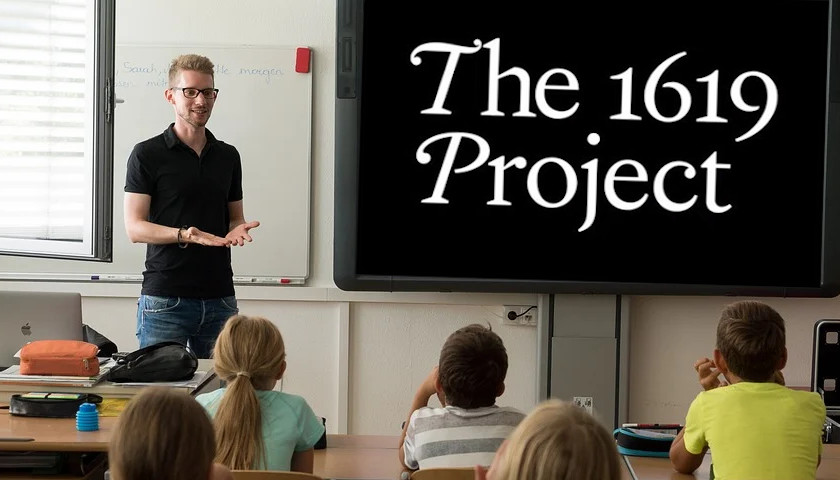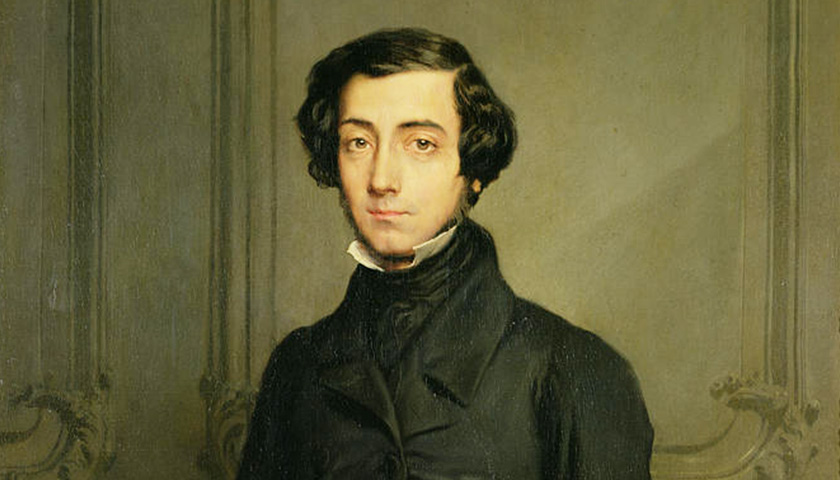by Jessie McBirney
A few weeks ago, the civics curriculum wars reached the White House: Donald Trump’s 1776 Commission published its first report on a Monday, and Joe Biden’s administration disbanded the group by Wednesday, the new president’s first day in office. The Commission’s first and only act, the 1776 Report, was a conservative response to the New York Times’s 1619 project, which it criticized by name. Its aim was to lay the foundation of a proper American civics education. The U.S. civics curriculum is subject to constant badgering from the Right and the Left, and as this latest White House drama shows, each side restating its narrative at the other accomplishes little. Conservatives are correct to care about America’s founding principles. But by tripping over tweaks to the curriculum, we miss a bigger opportunity to help the next generation act on one of those principles: federalism. Focus on national narratives comes at the expense of state-level knowledge and action.
No doubt the 1776 Report’s aim, to “enable a rising generation to understand the history and principles of the founding,” is crucial. But a multi-year focus on U.S. history and government in high school leaves students without an understanding of what their own state’s government can or should do. How, then, can they translate the value of federalism to the real world?
By my count, from the Education Commission for the States’ 2016 survey of state high school graduation requirements, only 17 states require any state government instruction. In most cases, that means a combined U.S. and state governments course over a single semester. Similarly, only 14 states require any form of state history instruction at the high school level. As a Californian with a bachelor’s degree in political science, I still know almost nothing about the California state assembly, not to mention my hometown city council.
Students learn that “federalism” is a distribution of powers between the federal and state governments. They learn that federalism is key among our founding principles and that it is made explicit in the Tenth Amendment. Then they move along to studying the workings of Congress and the presidency. (See the College Board’s guidance.) Of course, it’s vital that students know how the national legislature works, but if this remains their only framework for collective problem-solving, federalism becomes a mere piece of trivia, and state autonomy is more often seen as a liability. When young people encounter a policy problem, the only legislative tool they are familiar with is the U.S. Congress.
If conservatives want to solve local problems with local solutions, we must equip young people to understand their local institutions. Living the principle of federalism means pushing our schools to teach students about their own states – their histories, their problems and victories, their governance structures.
State and locally focused civics is also a bipartisan answer to concerns from the Left that civics lessons are irrelevant to students’ own experience. Civics education serves to give people knowledge about governing institutions, in order to participate effectively and responsibly. Many educators want students to understand the government’s connection to their own lives so that they can become engaged in their communities. Sometimes this happens at the expense of knowledge, though, especially when students learn only about the federal government as a mechanism for change. Building knowledge about social and political institutions closer to students’ daily lives equips them to make positive change at the appropriate level.
Instead of rebutting the 1619 Project’s contentions about the American Founding – warranted or not – the 1776 report restates the traditional narrative, as if saying it three times fast will make the New York Times disappear. Trump’s commission did not leave its supporters with any new tools with which to engage the debate. We need not mourn its demise; there are other ways to communicate the true meaning and value of our founding principles.
Civics wars will never leave us. The creators of the 1619 Project and the 1776 Report will keep tweeting and keep writing. But classroom curriculum is tricky to change from afar. Prioritizing state-focused civics courses can happen at the legislative level. Conservatives can do more than just reiterate the importance of our founding principles and hope that someone notices – we can also teach a rising generation how to live them.
– – –
Jessie McBirney is a Young Voices contributor. Previously, she worked in K-12 policy at the Thomas B. Fordham Institute and in government relations at the Council for Christian Colleges and Universities.









It’s ironic that I developed many of my leftist views from ninth-grade mandatory Civic classes that I took at Nashville’s West End Jr./Sr. High School back in 1966-1967 and from Hillsboro High’s mandatory U.S. History eleventh grade class with Ms. Mattie Pearl Regen. We had a civics teacher, Mr. Charles Haley, who would often play Devil’s advocate to familiarize us students with both the leftist and rightist interpretation of current events. Sometimes he’d play the conservative or right-winger; other times, he’d play the left-winger or progressive. One never knew ahead of time which position he’d take. We DID know, however, that we would need to prepare ourselves the day before class met with whatever assigned views he gave us the day before the Devil’s Advocate presentation came due. He kept all of us on our toes and we’re better for it. A similar format governed our eleventh-grade U.S. History program.
As for the 1619 project, it simply states that slaves enabled the Founding Fathers to achieve a high living standard for themselves and for close members of their ruling clique. They definitely wanted individual liberty and opportunity for advancement for themselves but refused to share such liberties and opportunities with commoners (whether white or non-white). Only when they absolutely had to out of self-interest would this ruling elite of wealthy property (including slave-holding)-holding whites give concessions to anybody outside their small clique. Only when they needed common white support would they give them the franchise while taking it away from the few free blacks who could vote. They extended slavery to snare ever larger numbers of blacks while forcibly driving out and genociding Native Americans.
Only major developments like post-Civil War Reconstruction or the growing view by other whites that slavery was an economic threat to free whites as well as vicious burden to blacks did enough pressure emerge to force the ruling whites to grant any democratic reforms at all to non-whites and to working class whites.
Thus, I agree with the fundamental tenants of the 1619 Project.
And the very fact that you agree with “the fundamental tenants [sic] of the 1619 Project” is proof-positive that they are utter nonsense, since you’re always wrong about everything.